Raising pigs is not much of a challenge. You need to provide your pigs with sufficient food, clean water, shelter, and a space to roam and root in.
However, like any animal, pigs can get sick.
Do pigs need shots or vaccinations?
Pigs, like other farm animals, need shots to prevent a wide range of viruses and bacteria that may attack them. The type of vaccines your pigs should be given depends on the age, breed, and location of your pigs.
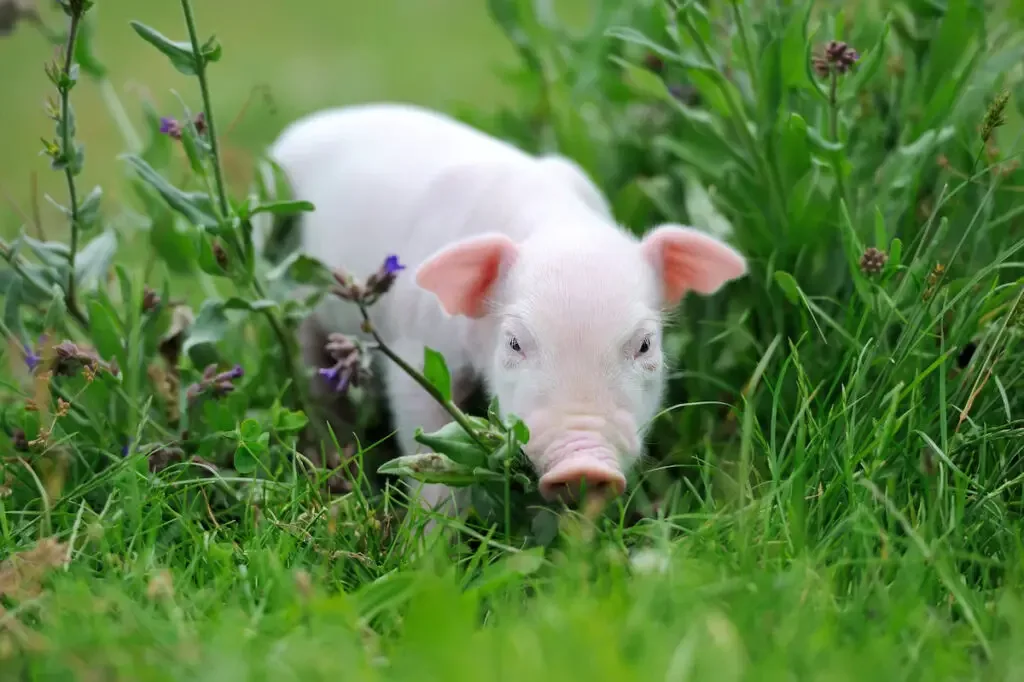
When should you vaccinate pigs? How often do pigs need vaccination? Continue reading to find out.
Do Pigs Need Vaccines?
Pigs need vaccines to prevent them from getting sick from preventable diseases in the future. What really are vaccines?
What Are Vaccines and Why Are They Important?
Vaccines are products administered to humans and animals (in this case, pigs) to prevent them from getting sick from diseases. Vaccines contain weak forms of viruses or bacteria that can cause a specific disease.
How do vaccines work? When vaccines are administered (usually by injection) to the pig, the weak form of virus or bacterium triggers the immune system of the animal to start producing antigens that fight against the disease.
Once the pig’s immune system has won the fight against the administered virus or bacteria, the pathways, enzymes, and other methods used to fight the foreign organism become part of its range of activity.
Then, if the pig encounters the organism or virus in the future, the pieces to fight the disease are already present.
As you can see, vaccines are important. They prevent pigs from getting potentially deadly diseases in the future.
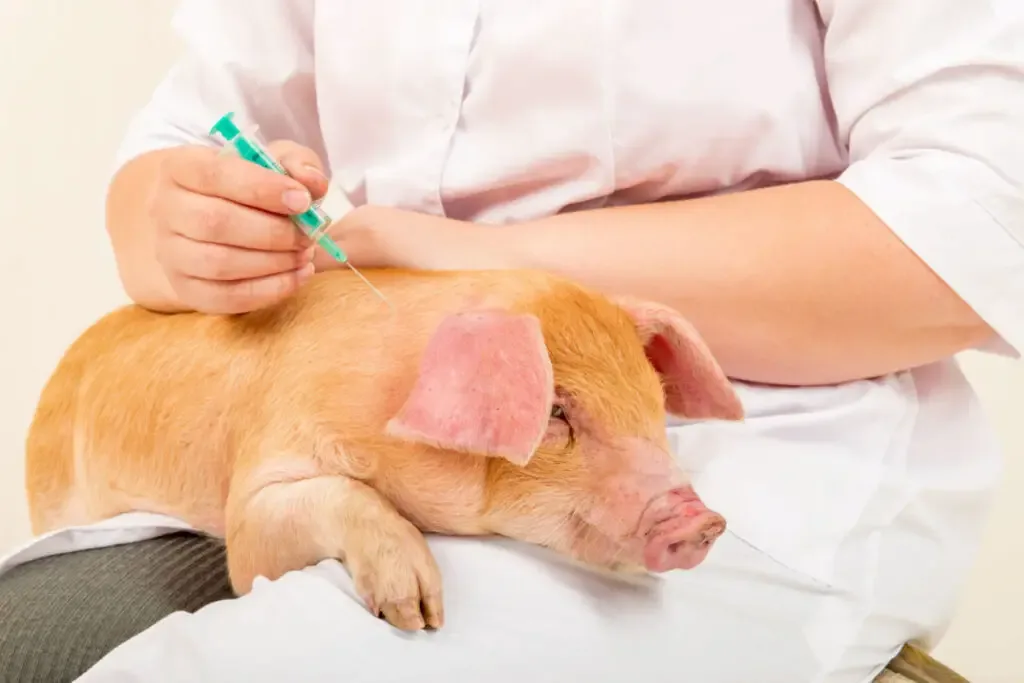
What Pig Diseases Can Be Prevented By Using Vaccines?
There are many pig diseases that can be prevented by vaccination. These diseases will be grouped into viral diseases (those caused by viruses) and bacterial diseases (those caused by bacteria).
Some viral pig diseases that can be prevented by vaccination are:
- Aujeszky’s disease
- Foot and mouth disease
- Porcine parvovirus
- PRRS
- Swine fever
- Swine influenza
- TGE
Some bacterial pig diseases that can be prevented by vaccination are:
- Greasy pig disease
- Actinobacillus pleurioneumonia
- Atrophic rhinitis
- E. coli diarrhea
- Erysipelas
- Pasteurellosis
- Streptococcal meningitis
The diseases mentioned above are easily preventable, so you need to vaccinate your pigs.
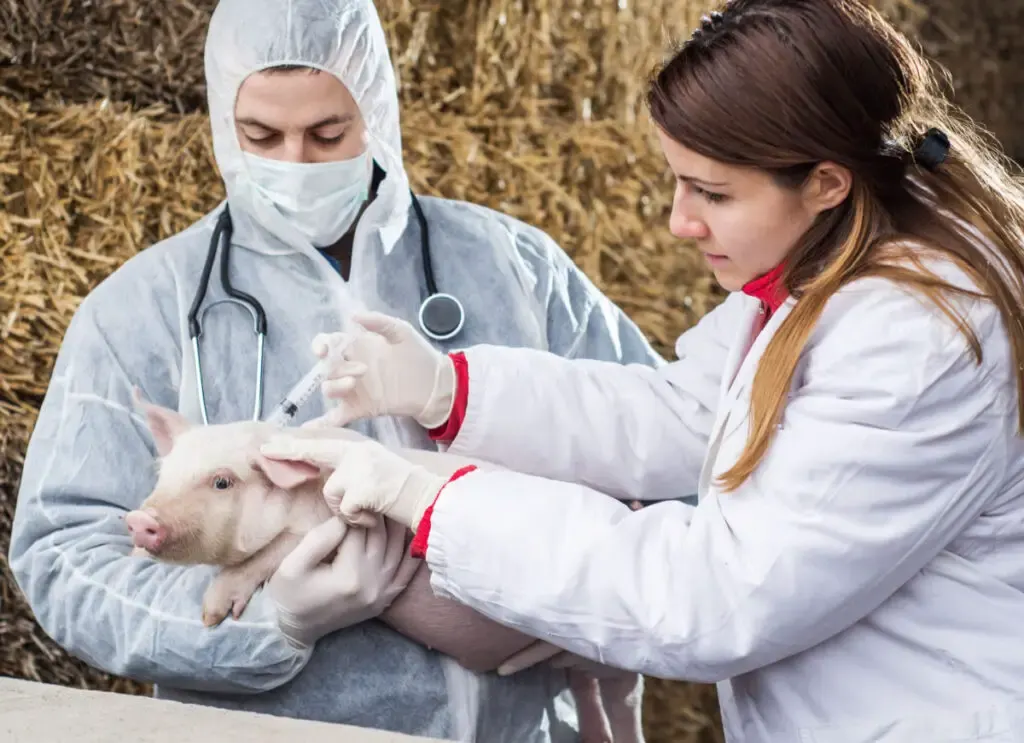
How Often Should You Vaccinate Pigs?
Vets usually make a vaccination chart according to the diseases prevalent in your area. Some vaccines are administered twice yearly while others are given even more frequently.
The table below gives the details of four diseases and when pigs should be vaccinated against them (according to the production stage of the pig):
| S/N | Disease | Pig Production Stage | When to Vaccinate |
| Leptospirosis parvovirus erysipelas | Gilts pre-breed | Twice (before breeding) | |
| Leptospirosis parvovirus erysipelas | Sows pre-breed | During weaning | |
| Leptospirosis parvovirus erysipelas | Boars | Twice yearly | |
| E. Coli | Gilts pre-farrow | Before farrowing | |
| E. Coli | Baby pigs | Once or twice before weaning | |
| Erysipelas | Grower | When newly purchased |
(Source)
Remember that your vet should be involved when planning how often your pigs should be vaccinated.
Storage of Vaccines
Here are ways to store vaccines for the best performance:
- Store vaccines according to the label directions. Some need refrigeration, some do not.
- Do not store food in the same fridge.
- Dispose of needles and other disposables after each use.
- Always check expiry dates and do not use expired vaccines.
- Each vaccine has its recommended temperature range, so you need to follow the instructions for administration.
Make sure that you store the vaccines properly.
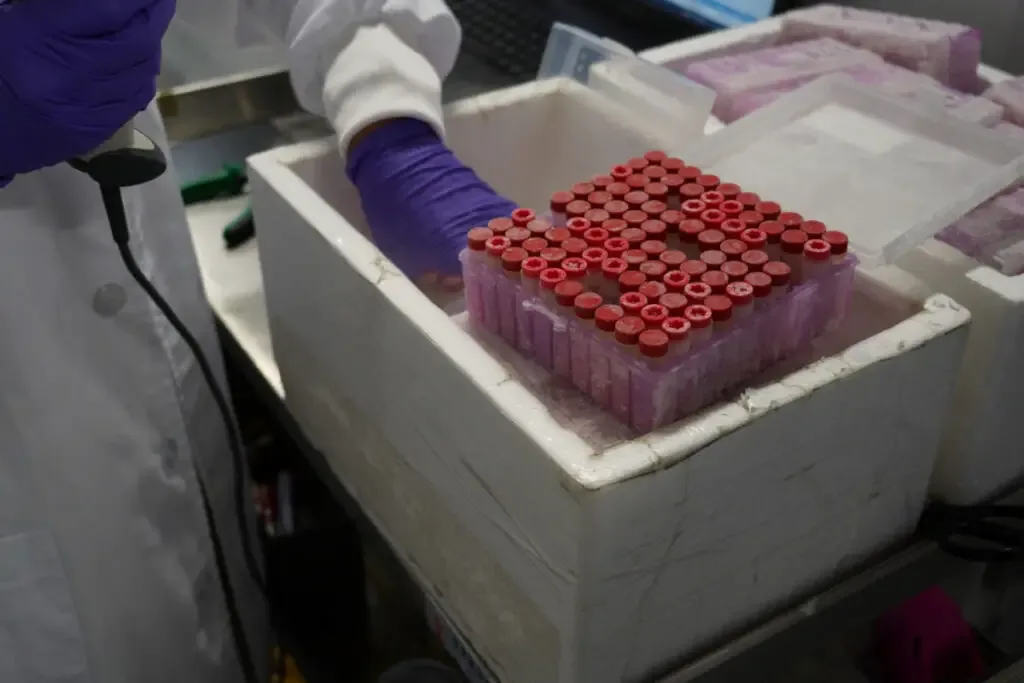
Issues Related to Vaccination
Here are some issues that you might face regarding vaccination:
1. Contaminated Vaccines
Sometimes, your pigs can get other forms of diseases after vaccination. It is usually because of the way the vaccines are stored.
The syringe and other vaccine accessories should not be stored openly because bacteria, fungi, and other microbes can grow on them. You should properly store vaccines to prevent contamination.
2. Ineffective Vaccines
You might feel that a vaccine is ineffective. One way to know that a vaccine is ineffective is when the vaccinated pig still develops the disease.
It is usually caused by an incomplete dosage or not giving the right vaccine.
3. Not Vaccinating Animals at the Right Time
Some diseases are seen in the early stages of an animal’s growth. If you do not vaccinate the animal before the disease arrives, it might seem as if the vaccine did not work.
You should always follow the vet’s instructions and vaccinate your pigs at the right time.
4. Wrong Injection Techniques
Some vaccines require subcutaneous injection, which is under the skin, and some require intramuscular injection, which is into the muscle. When giving shots to your pigs, confirm with the label and your vet which injection technique you should use.
5. Giving Pigs Vaccines that They Do Not Need
You do not have to waste a vaccine on pigs that will never get a certain disease. Remember to use only vaccines that are approved in your country and region.
Do not vaccinate your pigs because you see farmers in a faraway land vaccinating theirs. Always contact your local vet.
Make sure that you vaccinate your pigs properly so that you do not have any issues.
Related Questions and Answers
I know that you have a lot of questions to ask regarding the vaccination of pigs. Here are the answers to popular questions people like you have asked:
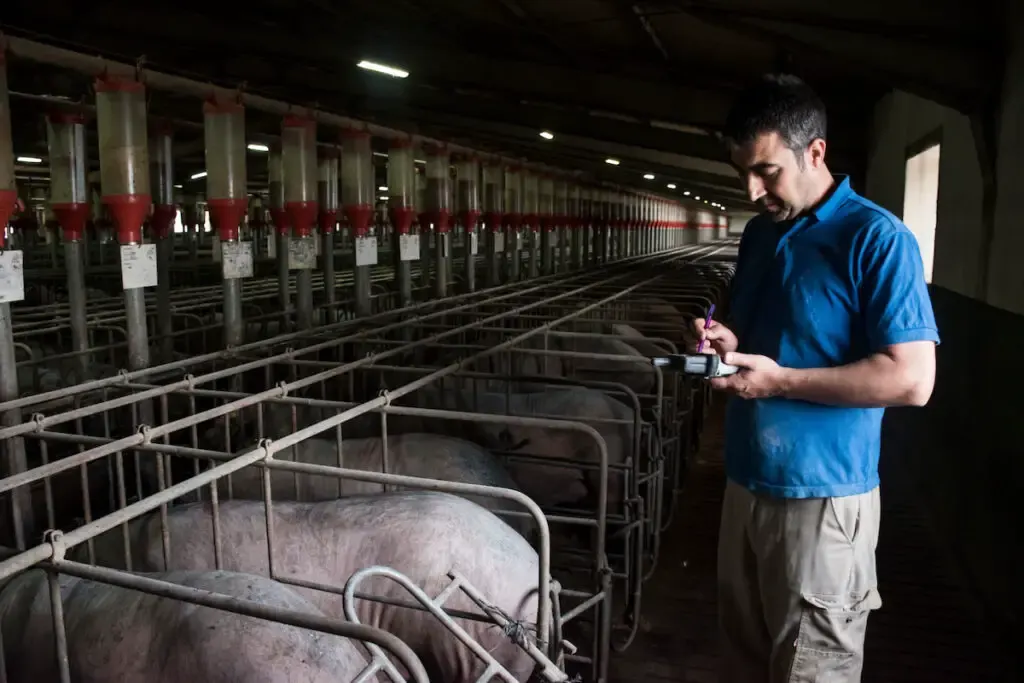
1. What is the Best Vaccine for Pigs?
The best vaccine to use depends on your area (where you raise your pigs) because every disease that can affect pigs is not found everywhere. The best vaccine also depends on the breed and age of your pigs.
Some common pig diseases that can be prevented with vaccines are:
- Erysipelas
- E. coli diarrhea
- Atrophic rhinitis
- Enzootic pneumonia
- Necrotic pleuropneumonia
- Clostridial dysentery of piglets
- Parvovirus infection (SMEDI syndrome)
2. Should You Use Goat or Cow Vaccines for Pigs?
Unless recommended by your vet, you should only use pig vaccines for pigs, goat vaccines for goats, etc. Do not vaccinate your animals if you are not so sure about the right vaccine to use.
3. Will Vaccinated Pigs Ever Get Sick?
Vaccinating pigs does not mean that they will never get sick. When you vaccinate pigs, you are only preventing a specific set of diseases at that time.
This means that if you do not vaccinate your pigs against a specific disease, they can get sick of that disease in the future.
Other causes of sickness in pigs can be nutrient deficiency (not feeding your pigs with sufficient nutrients) and raising pigs in an unsuitable environment.
4. Do Pigs Need Worming?
Pigs need to be wormed regularly. Breeding pigs should also be wormed to prevent them from transferring worms to their babies. Worming is a common practice for every breed and age of the pig.
5. How Do You Care for Sick Pigs?
Here are some ways to care for sick pigs:
- Isolate the Pig: If a pig is sick, you should not mix it in with the others so that it does not transmit any disease to healthy pigs. You should isolate it.
- Give the Pig Enough Feed and Water: Even if the pig has lost appetite, try to feed it and make sure that it is eating enough food and drinking enough water.
- Call the Vet: Make sure that a vet is around to check your sick pig and give recommendations.
You must’ve found the answer to your question, right?
Final Thoughts
Pigs need shots. You should vaccinate your pigs against several diseases that can be preventable. Make sure to contact a local vet or an expert to help you with vaccinating your pigs so that you do not make a terrible mistake.
Sources
- https://www.bi-vetmedica.com/species/swine/industry_support/show_pig/learn/vaccination_timinginsmallpigsandsows.html
- https://www.thepigsite.com/disease-and-welfare/managing-disease/vaccination
- https://www.nationalhogfarmer.com/animal-health/each-farm-needs-right-vaccination-program-pigs-and-profits
- https://animals.mom.com/vaccination-schedule-pigs-2248.html
